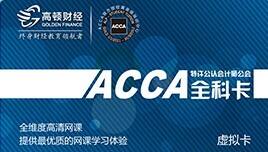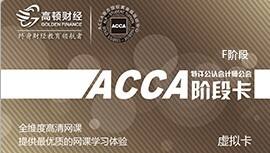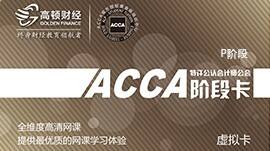2012年12月—BPP's ACCA EXAM TIPS
Top tutors at BPP provide you with their exam tips for the December sitting
ACCA F4 (UK)
Expect the first 7 questions to be knowledge based, covering the English Legal system, Contract Formation, Tort, Company Formation, Company Financing and Employment Law. Within the last 3 ‘problem’ questions there should be a question on contract breach and remedies.
The Bribery Act 2010 entered the syllabus in 2012 and was not tested in June, so either a knowledge or problem question is likely in December.
ACCA F5
The F5 examination will comprise five compulsory 20 mark questions,usually featuring a scenario and multiple requirements.
It is expected that one of the questions will be entirely written,generally speaking there will be one question from each of the five syllabus areas. Approximately 50% of the marks will be awarded for calculations and 50% for discussion it is therefore imperative that you devote time to practising both skills.
Ann Irons has repeatedly stated in her examiner’s report that students should NOT try to question spot or focus on some areas of the syllabus at the detriment of others. Advice would therefore be to study ALL areas in preparation for the exam.
ACCA F6 (UK)
The exam will comprise five compulsory questions. Question 1 will focus on income tax with Question 2 focusing on corporation tax. These two questions will make up 55% of the marks.
Question 3 to 5 will total 15 marks each. Question 3 will examine capital gains tax with the other two questions covering other areas of the syllabus.
VAT will be examined for at least 5 marks in either Question 1 or 2 but could form a separate question. Inheritance tax will also always be examined for at least 5 marks within Question 3 or 4 or 5.
ACCA F7 (International stream)
There will be 5 questions in the exam, all compulsory. The first 25 mark question will cover a consolidated statement of profit or loss and other comprehensive income and/or consolidated statement of financial position, and may include a written part. Questions 2 and 3 will also be 25 marks, Question 2 covering preparation of single entity financial statements, likely from a trial balance. Question 3 is usually set in the context of interpretation and often includes a statement of cash flows. The conceptual framework is often part of Questions 4 or 5 so it is an area you need to ensure you are familiar with. Inflation, government grants, discontinued operations, deferred tax, leases,intangible assets or financial instruments are possible topics for questions 4 and 5 this sitting.
ACCA F8
The F8 exam consists of 5 compulsory questions. Question 1 is a 30 mark scenario based question which will test a wide range of topics such as internal controls and audit evidence and procedures.
The second question focuses on testing knowledge and is worth 10 marks.
This question is often broken down in to 3 or 4 separate requirements and can require you to define some of the key terms within audit and assurance.
Questions 3, 4 and 5 are worth 20 marks each and the requirements will largely be based upon the given scenario. Typical areas which are tested in these questions are corporate governance, planning, audit risk, internal controls, audit procedures and audit reports.
Audit procedures, internal controls, audit risk and audit reports are almost always examined so make sure that you can generate both tests of control and substantive procedures for key cycles and balances as well as being able to identify internal control deficiencies. You should also ensure that you can draw out audit risks from a scenario as well as determining the effect audit issues may have on the audit report.
ACCA F9
The Examination contains four compulsory 25 mark questions, usually each question features a scenario and multiple requirements. Approximately 50% of the marks will be awarded for calculations and 50% for discussion. It is important that you practise both skills.
Anthony Head (F9 Examiner) has repeatedly stated that he will test across the whole syllabus. In many post exam commentaries he has stated that candidates who were well prepared and who had studied all parts of the syllabus did well on this paper. Candidates who were not successful may have focused on a small number of topic areas.
Investment Appraisal, WACC and Working Capital have featured in most exams, but just focusing on these topics alone will not be enough to generate a pass. It’s possible to get a whole question on each of these topics but they may just form part of a single question.
To maximise your chances of passing you will need to ensure you have a wide understanding of the whole syllabus.
ACCA P1
The format of this paper is quite straightforward – one compulsory 50 mark question and a choice of two from three 25 mark questions. Often, the compulsory question is set within a scenario based on real-life events allowing all three parts of the syllabus to be tested: you should therefore consider organisations with governance issues and how they control their exposure to risk and any resultant ethical dilemmas.
Optional questions tend to focus on governance, risk and ethics more discretely, but we could still see some cross-over, for example, internal audit is the subject of an article recently published by the ACCA and could quite easily fall into a governance-related question or one more specifically testing internal controls and risks.
Candidates should ensure they are familiar with all the various theories introduced within the learning materials as they are frequently examined – good exposure to past papers will illustrate the kind of test most likely to be faced in December.
ACCA P2 (International stream)
There will be 4 questions. The compulsory question for 50 marks will cover consolidated financial statements with adjustments on other syllabus areas, plus written parts, often in the context of accounting adjustments and ethics. You need to do two of the three 25 mark questions in section B of the exam, one of which is normally set in the context of a 'specialised industry' and one being a discussion question on current developments. Discontinued activities, acquisitions and disposals (SPLOCI and/or SOFP) or a statement of cash flows are possibilities for the consolidation part of the compulsory question this sitting, while application of the definition of control, management commentary, disclosures, fair values, improvements in performance measurement, conceptual framework or leasing are possibilities for the discussion question.
ACCA P4
Section A (50-70 marks in total) will contain two compulsory questions; each question will be allocated between 25 and 40 marks. Section A questions will integrate a number of different syllabus areas and often include a substantial discounted cash flow question, and business valuation techniques.
In section B (30-50 marks in total) you will need to choose two questions from a choice of three. Each question will be worth between 15 and 25 marks, and question 5 will be a discursive written question. Commonly tested areas include risk management, and currency risk management is due to be tested. The European debt crisis could feature as an aspect to the discussion question.
ACCA P5
Section A (50-70 marks in total) will contain two compulsory questions;each question will be allocated between 25 and 40 marks. The style of recent exam papers has been that question 1 in the exam has required a high level of data analysis using numerical techniques e.g. ROCE, RI and EVA. Question 2, in recent sittings, has often asked for the application of a performance management framework such as the balanced scorecard, the building blocks model, the performance pyramid and the performance prism. The balanced scorecard and the buildings blocks model are due to be tested.
In section B (30-50 marks in total) you will need to choose two questions from a choice of three. Each question will be worth between 15 and 25 marks. Commonly tested areas include quality management, benchmarking (in both a private & a public sector context), the application of strategic models (such as PEST, Porter’s 5 forces and the BCG matrix), corporate failure models and transfer pricing.
ACCA P6 (UK)
The exam will comprise two compulsory questions within Section A which will both be of a case study style and will cover between 50 %-70% of the marks. One of these questions will focus on personal tax issues and the other will focus on corporate tax issues. Both will require a professional document to be constructed for which professional skills marks will be awarded.
Section B will comprise three questions of which only two are to be answered. These will be in a more succinct style and will examine any areas of the syllabus.
The unincorporated business is always a popular topic at P6.
ACCA P7
We expect that the P7 exam in December will mirror previous sittings, with two compulsory questions making up the majority of the marks on offer and a choice of two from three optional questions.
For this sitting, you can expect a planning scenario in the compulsory section which should draw on article content recently published by the P7 examiner, while we expect that optional questions will again test audit reports, ethical issues and practice-related matters. Candidates should also take heed of the examiner’s recent advice on exam technique for P7 when preparing for this exam.

相关阅读
云南大学会计学专业(ACCA方向)首招45人2013/06/26
ACCA考试学习的三大优良习惯2013/06/25
详解ACCA考试规则与方法2013/06/25

















